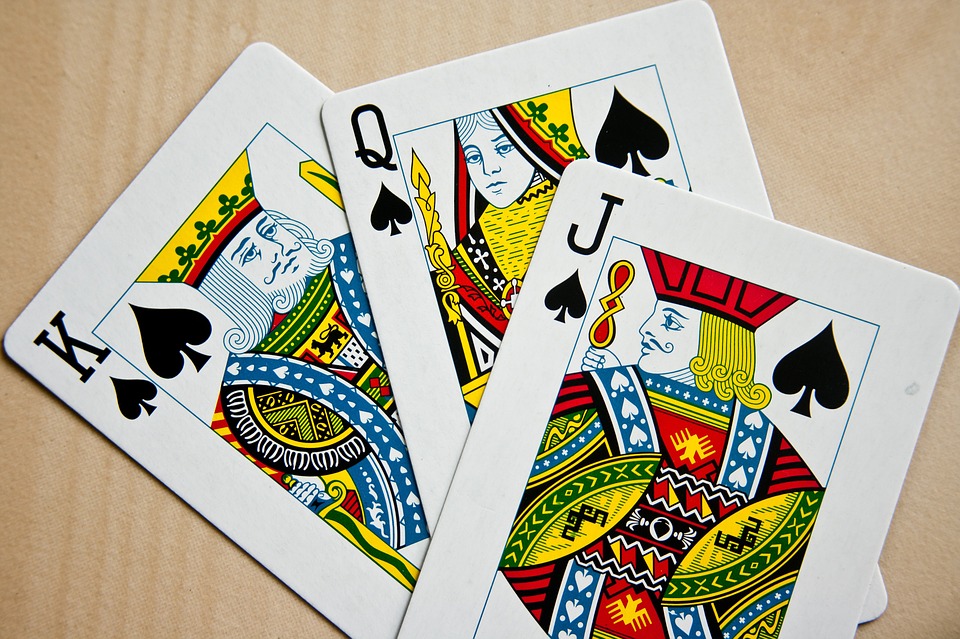

Playing cards – with actual cards and not a device – has become something of the past. If you’re looking for some cheap (if you don’t have cards) or free entertainment (if you do have cards), consider learning how to play a card game. You hear plenty about Texas Hold ‘Em, but not as much about Blackjack. Here is an easy run-through to help you get started.
A simple card game, Blackjack focuses mainly on luck and chance, but also works as a strategy game. You too can have a dalliance with lady luck on one of the most popular casino games on the planet.
VALUE:
In Blackjack, each card has a value that remains constant throughout the game. The goal is to beat the dealer and also not bust with a 22 or more. Here are their values:
Number cards: The number is the value of the card.
Face cards: The value of face cards is 10.
Ace: Either 1 or 11. It is counted as 11 (…generally) unless it would put you over 21, in which case it counts as 1. Meaning, an ace and a ten card are 21 in two cards, which is Blackjack/Natural.
REALIZE YOUR CHOICES:
The casino’s greatest advantage is that the player has to act first. If a player “busts” (goes over 21), the casino immediately takes the player’s money. If the casino then “busts” on the same hand, the player still loses. The dealer is the last one to play the hand. There are two basic options when it’s your turn:
Hit: Get another card. You are able to hit until you go over 21.
Stand: Keep your current cards and do nothing. You do not receive more cards. There are also a few extra possibilities you can use for certain hands:
Taking insurance: This is only available when the dealer is showing an ace. You place a new bet that will then pay at 2-1 if the dealer does indeed have a blackjack. You lose your other bet (which would pay 1-1) but win the insurance, resulting in breaking even.
Double Down: You double your bet, and get only one more card. This is generally only used when your initial two cards equal 8-11 or soft 12 to soft 19.
Split: Make two hands from one hand, if both cards are the same value. Tens, Jacks, Queens, and Kings are usually counted as 10 each. If both of your hands win, you get double the amount of money. If only one wins, you break even. If both hands lose, you lose double the money. Split the hands by separating the cards and placing a duplicate bet.
Surrender: In many casinos, you can (before playing and after determining if the dealer has a blackjack) choose to give up half of your bet without playing. Surrender is only desirable when the dealer is showing a 9-A, and the player has a 5-7 or 12-16.
When the dealer has an ace, he or she automatically checks to see if a blackjack is had. Early surrender is when you opt out of half your bet before the dealer checks for a blackjack on his/her behalf.
WINNER, WINNER. CHICKEN DINNER
To win, the player has to be closer to 21 than the dealer, without going over. If the player goes over, he has “busted.” If it’s a tie, it’s a “push” — neither the player nor the house wins. A blackjack is when your starting hand is an ace and 10, or face card.
The dealer will go around the players until each one decides to stand. He then plays his own hand, which determines the outcome of the game.
Know the “House rules.” Most casinos always “stand” on 17 and greater. Some will “hit” a “soft 17” (any 6 and an ace). Some casinos (though rarely) require an “ante” like in poker (play in those casinos favors the house as much as 20 percent).
Casinos have varying rules on insurance, splitting, and doubling down when it comes to how and when you can do it. Your dealer will surely let you know it if comes to this. For example, some casinos won’t let you split a third Ace; for surrendering, some abide by early or late surrender only. Understand the “House rules.”
Most casinos always “stand” on 17 and greater. Some will “hit” a “soft 17” (any 6 and an ace). Some casinos (though rarely) require an “ante” like in poker (play in those casinos favors the house as much as 20%). You’ll quickly gather your casino’s rules when you sit down to play.
Casinos have varying rules on insurance, splitting, and doubling down when it comes to how and when you can do it. Your dealer will surely let you know it if comes to this. For example, some casinos won’t let you split a third Ace; for surrendering, some abide by early or late surrender only.
Recognize the implications of insurance, splitting, doubling down and surrender. All of the extra actions favor the house when used incorrectly — it wouldn’t be a casino game if the opposite were true.
When making an insurance bet, you are betting that the dealer’s hole card is a 10, Jack, Queen or King. There are 13 potential ranks of cards in the deck. You have less than a 1 and 3 chance of it paying. The best time to make an insurance bet is when the count is (whatever you found it to be.) If the dealer turns out to have a blackjack, you will have a “push” (tie) with the dealer; your insurance bet will pay 2-1 which pays better than the original bet of 3-2.
When doubling down, you only get one card. You may not like the hand you end up with. In fact, that is what the casino is counting on! Never double down if the dealer is an ace or a face card (unless you have 11).
Splitting can turn an excellent hand into a terrible one, and vice versa. Here are some rules of thumb: Never split 5’s — your total is 10; you are likely to end strong. Always split 8’s and Aces. Splitting 8’s will change probable losers to probable winners. Splitting Aces is advantageous, but understand this: You are only allowed to split Aces once (sometimes), and you can only take one card for each new hand (sometimes.) Some casinos did this because Splitting Aces, without any restriction, is a great advantage.
Again, with the exception of a certain casino here and there.
Once you have “surrendered” your hand, the dealer’s actions are unimportant (to you). If the dealer’s hand goes sour, you have already given up.
Some house players will just play with chips substitutes like peanuts and pretzels. If you do choose to play with actual money, remember to know when to walk away! Last thing you need to do is blow your apartment rent on what should be a cheap or free night of home entertainment.
For more tips and advice on Blackjack, go to http://entertainment.howstuffworks.com/how-to-play-blackjack1.htm.






 Equal Housing Opportunity
Equal Housing Opportunity

